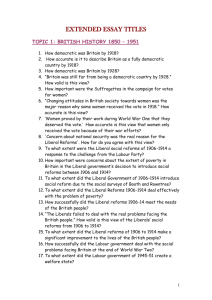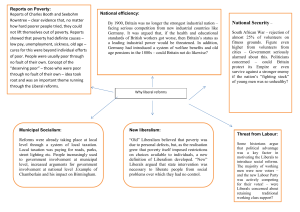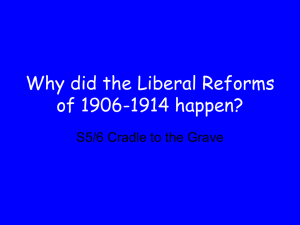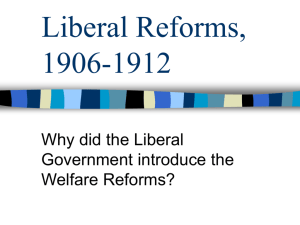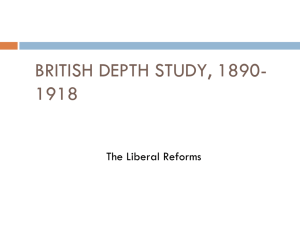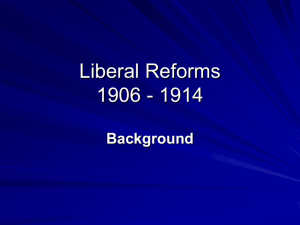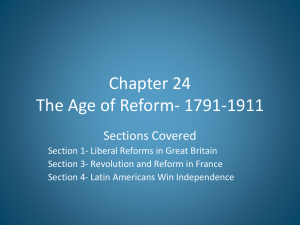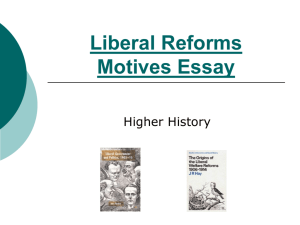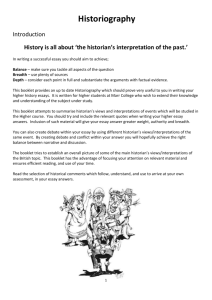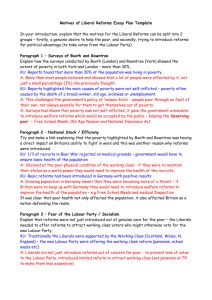Liberal Reforms Revision
advertisement
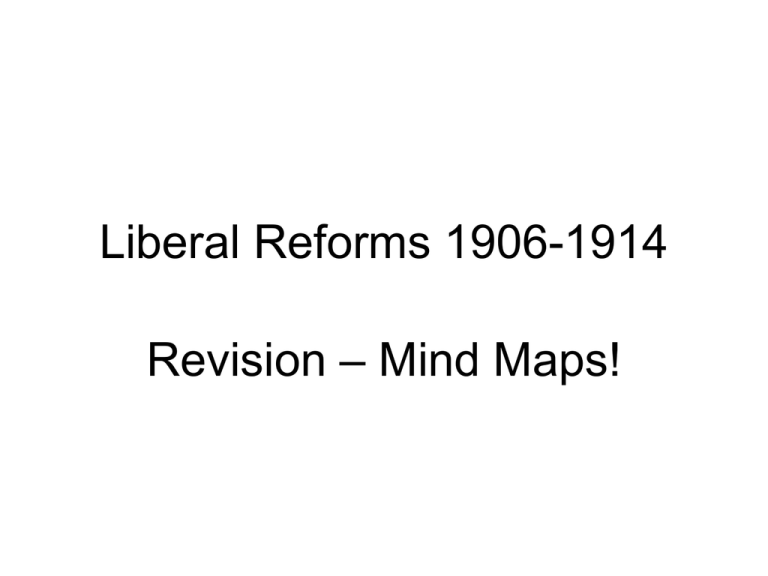
Liberal Reforms 1906-1914 Revision – Mind Maps! Liberal Reforms 1906-1914 • These mind maps are intended to help you remember some of the main points. • You should use your notes to add much more detail! • Each area of a mind map should become a separate section in your paper 1 essay answer. • Remember - problems for group (young etc) / ways acts helped + why? / drawbacks + why? Liberal Reforms 1906-1914 • Remember the ‘Correction Code’ – take pride in your work! • Remember how essays are marked = 20 marks total 4 for structure (intro/ equal sections/ conclusion + – / answer the question!) 6 for Knowledge 10 for Analysis Liberal Reforms – Success? Young Old Liberal Reforms – Success? Sick Unemployed Young School Meals 1906 “feed the stomach…” 3 million 1906 – 50% local authority 14million by 1914 – compulsory 1914! Medical Inspections 1907 Not popular with Liberals – show ill health! 90% bad teeth, 9% Ricketts! 1912 Gov provide treatment Old 1908/1909 – 5s a week. Popular – 500’000 / 650’000 / 1000’000 by 1914! 70 = less cost / less claims! Below Rowntree’s poverty line Liberal Reforms – Success? Sick Unemployed National Insurance 1911 – employee, employer & state contribution “9 pence for 4 pence!” Workman’s Act 1905 Breadwinner covered! Problems = friendly societies / Peoples Budget (Parliament Act 1911) Distress committees – 1st step state responsibility! Unemployment Insurance 1912/1913 – 2.3 million, but only certain trades! Labour Exchanges 1909 – 3000 jobs a day (Skilled workers) Unskilled = meal, wash, shave & mend clothes! Liberal Reforms – Why? National Security National Efficiency Liberal Reforms – Why? New Liberalism Reports on Poverty Threat from Labour National Security Boer War 1899-1902 – 50% recruits rejected! Defend the Empire! National Efficiency Need healthy work force. More workers = more taxes! = more money for government! Liberal Reforms – Why? New Liberalism Threat from Labour Lloyd George cared about poor. Churchill worried about losing power! New party for working class. Reports on Poverty Booth & Rowntree (London & York). 30% in poverty! Pressure on government. All working class men can vote by 1900. Pressure on other parties to do more!
